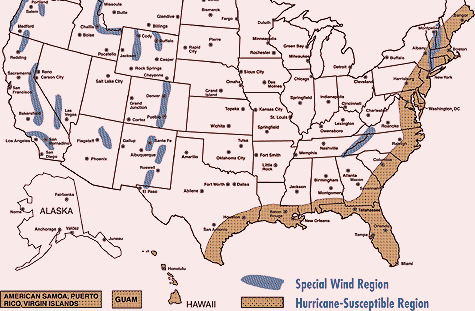Hurricane FAQ
Everyone who lives in a hurricane vulnerable area is bound to have a question or two about hurricane preparedness, as well as the nature of these storms. With that in mind, National-Hurricane-Center has come up with a list of hurricane frequently asked questions.
Q: When should I evacuate for a hurricane?
A: You should evacuate as soon as emergency managers ask you to, without hesitation. In order to be prepared you should make sure that your hurricane checklist is in order, and be sure to have a plan of action for you and your family.
Q: If I don’t live near a flood or inundation zone, what should I do?
A: Emergency managers will generally not ask you to evacuate if you don’t live in one of these areas. A rule of thumb is to hide from the wind and run from the water. If your structure is able to withstand the expected winds (generally, homes in the United States are), then you should have your disaster kit in order and hunker down.
Q: What emergency supplies should I have on hand to get through a hurricane and its aftermath?
A: You should generally have three days worth of everything you need (I’d shoot for more) to survive. Be sure to factor in the lack of electricity, gas, and water services after a hurricane hits. Please refer to the Disaster Kit page for more information.
Q: What is the Safir-Simpson scale?
A: It is the scale used to determine the strength of a hurricane by wind speed. It serves as a hurricane category guide.
Q: What are ‘outer-bands?’
A: Outer bands are thunderstorms on the hurricane’s periphery. You are likely to encounter strong winds and rain, as well as the possibility of a hurricane spawned tornado.
Q: What is a storm surge?
A: A storm surge is the dome of water that comes ashore when a hurricane makes landfall. I you live in a surge zone, you should evacuate as soon as you are ordered to by emergency management officials.
Q: What is a hurricane watch?
A: Hurricane watches are issued in areas that hurricane conditions are possible in 40 hours.
Q: What is a hurricane warning?
A: A hurricane warning is issued when hurricane conditions are expected, and 36 hours before the onset of tropical storm force winds.
Q: What should I do to attempt to hurricane proof my home?
A: Check k out ways to avoid hurricane damage, as well as your local building codes to ensure that you are as prepared as possible for different types of hurricane damage.


Recent Comments